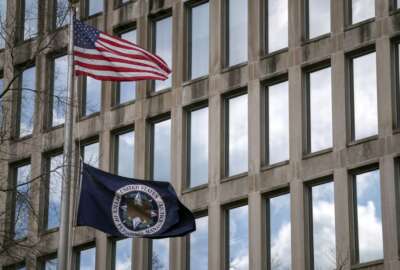Insight by Serving Those Who Serve
Open Season auto pilot? Not for 2025
Feeling overwhelmed by Open Season? Serving Those Who Serve has resources to make this season's choices a little easier.
This content was written by Serving Those Who Serve (STWS).
Serving career feds for nearly 40 years affords the opportunity for some meaningful insights. Perhaps one that our community takes for granted the most is the value of the Federal Employees Health Benefits Program. In a world where health care choice and options seem to be shrinking, feds enjoy a robust “cafeteria plan” abounding with choice and options.
Yet, the reality we see has been a “set it and forget it” approach for most feds. Happily, this has been a serviceable strategy for much of the federal workforce, until possibly this year.
Seismic is not an overreaching word to describe the changes in the overall health insurance landscape for federal employees.
To begin we have a historic realignment in the programs available to postal employees as the FEHB plan is supplanted by the Postal Service Health Benefits Program. Not only does the pool of available carrier options shrink from 68 to 32, but new requirements for Medicare Part B enrollment are incorporated.
Add to this that the estimated average premium increase is 11.1% and the need for education and informed decision making is greater than ever.
Non-postal feds are not escaping unscathed. Your average projected premium increase is 13.5%. Keep in mind that average means that your increase may be even higher. The time to discover that is not in January of next year.
To add to the complexity for non-postal feds and retirees of Medicare age, for 2024 there were 40 Medicare advantage options to consider within the FEHB chassis.
Feeling overwhelmed yet? You are not alone.
Fortunately, at Serving Those Who Serve in addition to having decades of experience helping feds navigate the ever-growing complexities of FEHB, we are truly fortunate to have strategic relationship with some of the finest minds and authors currently writing on these topics.
Central to our educational offerings has been Ed Zurndorfer. With over 1200 articles to his credit, Ed is a towering figure in the federal benefits educational space. So, we reached out to him for his thoughts on what makes this Open Season different.
Not surprisingly Ed has a robust slate of articles in the works leading up to and through the 2025 open season beginning on Nov. 11, 2024.
Here are the key considerations and discussion topics Ed will address:
- With the major changes to Medicare Part D (prescription drug program) resulting from the passage of the Inflation Reduction Act of 2022, does it make sense for some feds to enroll in Medicare Part D?
- What is Medicare Advantage and what plans are available within FEHP and PSHB?
- Are you taking advantage of a Health Savings Account?
- Are you considering -“total cost”- (including deductibles and co pays) when selecting your FEHB or PSHB plan?
- What tools are available for making comparisons between available FEHB and PSHB plans?
- Do you know what a formulary list is and why it is critically important to your prescription drug coverage decision?
If this brief list seems like a lot, have no fear. Ed will be available to explain and answer questions firsthand during multiple live webinars at www.stwserve.com.
To be as thorough as possible we at STWS are also fans of the Consumer Checkbooks Guide to Health Plans for Federal Employees. This tool has proven invaluable through the years to effectively compare FEHB and soon PSHB plans. We reached out to the man behind this outstanding tool, Kevin Moss for his tips for the upcoming open season.
Kevin shared the following pointers:
Confirm the available plans:
Use tools like the OPM comparison tool or Checkbook to see what plans are available by zip code.
Review Section 2 of your FEHB plan brochure:
This will be published each year on the site for your plan. Per Kevin “Section 2 will alert you to important benefit changes.”
Use yearly cost estimates to narrow down plans:
What you’ll pay is more than just the annual premium. We at STWS feel the guide is a great tool for making these evaluations.
Check providers and prescription drugs:
These are important steps in deciding to enroll in an FEHB or PSHB plan. You can find this information on the plan website.
Here’s a link to an STWS podcast with Kevin (https://www.youtube.com/watch?v=pLfLpI70J6c) and you can read more from him on the Consumers’ Checkbook website.
Readers of this article can enter STWS and get a 20% discount on the Consumers’ Checkbooks online tool.
We extend heartfelt thanks to Ed and Kevin for being part of our mission to Reach, Teach and Serve you, the career civilian fed.
Our closing thought is this: Perhaps more than any year past knowledge and preparation are power in making the best possible decisions for you and your family this Open Season.
We are grateful to Federal News Network for helping us get this vital messaging out to you. Be sure to bookmark them as well as STWSERVE.COM.
And not to overwhelm you but Medicare’s open enrollment for 2025 runs from Oct. 15 through Dec. 7, 2024. Lots to think about here too.
To help with your Open Season preparation, here are our upcoming webinars:
Understanding FEHB, Medicare and TRICARE for Federal Employees
Oct. 23 10:30 a.m. to 2:30 p.m. Eastern
Nov. 20 10:30 a.m. to 2:30 p.m. Eastern
Sign up for one or both, and feel free to share with your friends. Knowledge is power and we are here to help empower YOU!
**Written by Dan Sipe. The information has been obtained from sources considered reliable but we do not guarantee that the foregoing material is accurate or complete. Any opinions are those of Dan Sipe and not necessarily those of RJFS or Raymond James. Any information is not a complete summary or statement of all available data necessary for making an investment decision and does not constitute a recommendation. Investing involves risk and you may incur a profit or loss regardless of strategy suggested. Every investor’s situation is unique and you should consider your investment goals, risk tolerance, and time horizon before making any investment or financial decision. Prior to making an investment decision, please consult with your financial advisor about your individual situation. While we are familiar with the tax provisions of the issues presented herein, as Financial Advisors of RJFS, we are not qualified to render advice on tax or legal matters. You should discuss tax or legal matters with the appropriate professional.
Copyright © 2025 Federal News Network. All rights reserved. This website is not intended for users located within the European Economic Area.





